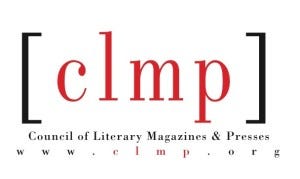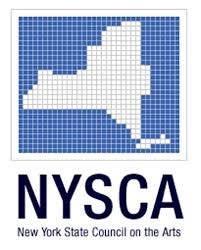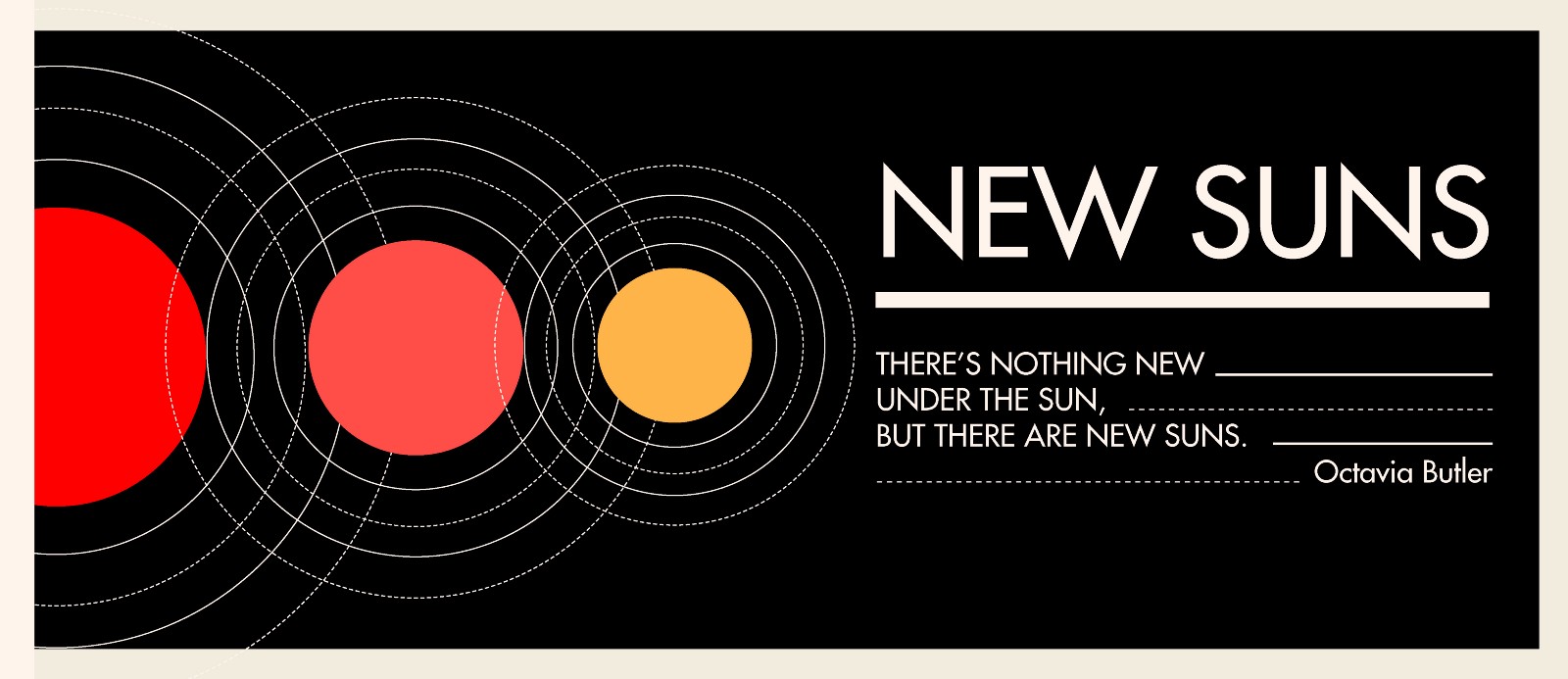writing life
Tarzan In The 21st Century: Yoss On What It’s Like To Be A Writer In Cuba

We’ve asked some of our favorite international authors to write about literary communities and cultures around the globe. We’re bringing you their essays in a new ten-part series: The Writing Life Around the World. The third installment is by Cuban author Yoss.
Havana, Cuba
translated from Spanish by Daniel Gavidia
I walk on a lava desert, sweat runs down my forehead, my shoulders, my back, beneath my feet the blanket burns with boiling flames.
Eh… the blanket?
I suddenly come out of my dream in a bad mood and stretch. Did they cut the power again?! I look sideways at my alarm clock on the night desk. Holy shit, and it’s only eight in the morning? This is terrible. So much for my plans of sleeping late: without the fan at maximum speed, no one can stand more than ten minutes of this barbecue, even I, who live on the third floor of a building without any other buildings surrounding it, which means I get the breeze… when there is one.
The Cuban summer is no game… and they say that this is the hottest one since 1880. And then they say that global warming is a fallacy. The worst part is that when they cut the power so early, it usually lasts until five in the afternoon, at the very least. We are not even in August and it already looks like the feature-length blackouts will be coming back. Will it be like the summer of ’93, the worst in the Special Period, with eight hours of light for every eight hours without it… or will it be even worse?
We will cross that bridge when we come to it. In this country one can never know what will happen, so it is best not to make many plans. Or to worry too much, because you cannot fight the inevitable. The Cuban version of Saint Augustine’s famous prayer would go something like this: Give me strength, Oh Lord, to change what I cannot change, to endure what I cannot change… but, above all, give me wisdom to know how to make out the difference.
* * *
Anyway, sleep is over for the time being. Resigned, I spring up with an enthusiasm suited for a day that will get better than its start. I put on some shorts and stomp downstairs to wash my face, shave, and have breakfast. We Cubans have learned in the flesh: one must cooperate with the inevitable and make a virtue out of necessity. At least I will go to the gym early and have more time later to check my emails and write something. As usual, with three or four projects at a time, I am a bit behind on all of them. To begin with, I was supposed to have finished A Hundred Questions About Weapons about a month ago, and I still have two questions about airplanes and ten about rockets. As long as there is electricity in my mother’s house…
Murphy’s Law: When my face is all wet, I hear the bugle of a cavalry charge — my phone. It is Vladimir, the carpenter, letting me know that he is leaving his house in Alamar to come install the window we are missing. Almost with tears in my eyes I tell him that we don’t have any power, so it will have to be another day, sorry. And we both take a dump on the Electric Company.
But you have to realize that you must bust your ass in order to make a peso writing …
As I brush my teeth, I glance sideways at the cedar window on the entrance, with tinted glass, already placed and cemented. The other one is barely fastened by wedges. They are pretty, resistant… and above all hermetic. When they are finished, we will be able to finally stop worrying about downpours flooding the living room. It is true that six hundred convertible pesos for both is quite the price. But the workers have no mercy. Masons, carpenters, and plumbers all think that because one is a writer and sometimes shows up on TV or on the paper, then one carries gold around, or has an account in a Swiss bank. But you have to realize that you must bust your ass in order to make a peso writing …
I shave, careful not to cut off my nose or one of my lips, because I am still quite zombified. Yesterday, after writing about the F-86 and the MiG-15 and their fights over Korea in the early ’50s, I stayed up until two revising Zhen-Galac, Twenty-Three Squared Tiles, the novel I want to send to Lugar Común, the small Canadian Spanish-language publisher that has already published Bestia, a book by my colleague Elaine Madruga Vilar. Even though they don’t pay much, it’s still one more published book…
And it never fails. When I have my face almost entirely covered in shaving cream, my phone rings again. My prepaid cards last merely as long as a merengue does in the entrance of a school, especially because up here Dania and I don’t have a house phone. Even today, in the era of iPhones, satellite phones, and Wi-Fi, getting a simple landline in Cuba is harder than finding out God’s phone number. (If He has one, of course…)
Ever since we moved here a year ago, we have considered buying a landline at the street price — between six hundred and eight hundred convertible pesos — but there is so much to buy and do in a new house! Starting with the windows and ending with the windows…
So for the moment we are postponing it in place of more pressing needs. After all, my mother lives a mere 120 meters away, across San Lázaro Street, and having to go there to check my email in my old room is the perfect excuse (if there were any lacking) of paying my old lady a daily visit and having lunch there, even though she is not as good at cooking as she thinks…
The worst part is that every time someone wants to locate me urgently and calls my house, my holy progenitor gives away my cellphone number without a second thought, and calls from a landline are always paid for by the cellphone that answers them… despite how expensive minutes are right now! I hope that these prices normalize with the end of the Yankee embargo.
This is why, whenever I see on my Blackberry screen (it’s an authentic Nokia, from the Ecuadorian Movistar company, a gift from a friend living near Guayaquil, which is already obsolete, but I keep it because its keyboard has all the letters, even the ñ! I always end up writing something I don’t mean with the newer phones and their hypersensitive tactile screens) an unknown number beginning with a seven — that is, a landline from Havana — I fill myself up with Oriental patience so that I answer without growling at the inconsiderate person willing to waste my minutes so carelessly and so early in the morning.
How lucky I am to be so kind; it was Lourdes de Armas, a writer and friend from the office of the Writers Association, in the UNEAC, calling to confirm I was finally going to be part of the jury of the David Science Fiction Prize. Yes, of course I will. Ah, great, can I call you later then? No, why? I’m confirming it now. Do I come by to pick up the books or do they deliver them to me? No, they prefer to wait for Elaine, the third member of the jury (the second will be my lifelong friend and fantasy-writing colleague Raúl Aguiar), to be home, so that they only have to make a single trip and can save gas delivering the books. Native economizing, our daily bread.
By the way, they pay you for being part of the jury in the David. Not much, three hundred pesos. But little by little you move forward… and right now those scant twelve convertible pesos represent an entire fortune to me.
…lack, lack, lack… the word Cubans have heard the most for the past half a century.
So I hang up with a great smile. How little is needed to make a Cuban writer’s day, regardless of how twistedly it begins! The David, an award for the unpublished, is still one of the most prestigious competitions for young writers. Created in 1967 in honor of the anti-Batista fighter Frank País (David was his underground alias), it has had a science fiction division since 1979. Its first winner was Daína Chaviano, and the second was Agustín de Rojas. Two illustrious reference points for the sci-fi genre in Cuba, if there are any. From ’79 to ’84 the award was given annually, then it was downgraded to a biennial prize. I myself won it in ’88, sharing it with María Felicia Vera and her amazing book of short stories El mago del futuro, with my collection Timshel, which I consider the true start of my writing career. Unfortunately, since Gina Picart won the prize in 1990 with another story collection, La poza del ángel, “our” David had been inactive for twenty-five years, with the usual excuses: lack of money for awards and publishing, lack of public interest, lack, lack, lack… the word Cubans have heard the most for the past half a century.
Of course, everyone always lays all the blame for that “lack” on the Yankee imperialist embargo. And Amen.
One of the first measures that the new UNEAC directive undertook, with the magnificent black writer Alberto Guerra Naranjo as vice president and my brother Raúl as adjunct, was to establish the David for science fiction. They asked me to make the submission guidelines, and I used the opportunity to expand the competition to include heroic fantasy and horror also. In this manner, even though a last-minute mistake made only novels eligible for the prize, many friends have sent their manuscripts for review. There are eight texts in the competition, and this is only because many young luminaries of the fantasy genre — like Eric Flores, Erick Mota, and even Elaine Vilar — have already published books and therefore cannot enter.
I don’t see an opportunity to tell those interested in the competition that the matter still stands; many feared that something would go wrong at the last minute, as happened in 2013 with the planned and very much awaited Anticiparte, an annual fantasy publication of Cuban letters that died before it began, despite all my and Rinaldo Acosta’s efforts. Still, Fabricio has told me they are now assembling a sort of anthology of short stories and essays, with top-notch writers like China Miéville, Mike Resnick, Connie Willis, James Patrick Kelly… and yours truly. What an honor, to appear among such illustrious company!
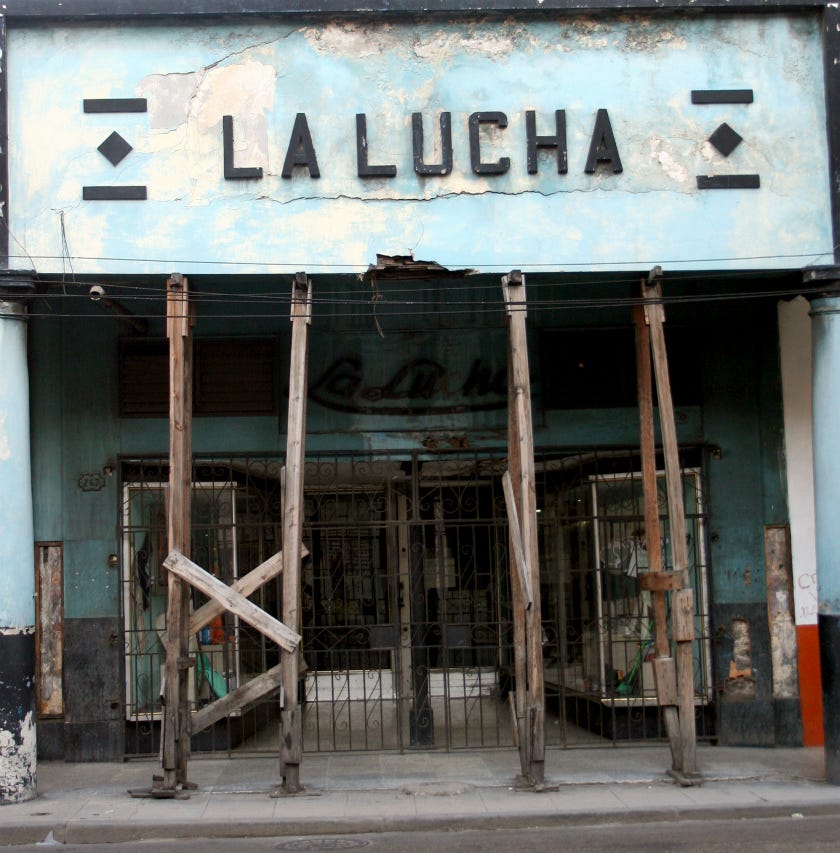
* * *
I have for breakfast my regular pot of yogurt and a plate of mortadella with melted queso blanco. Most Cubans, like my girlfriend, don’t have breakfast and barely drink a strong coffee, but I do need a good load of proteins to start my day. After all, I’ll be in the gym in a few minutes. For now, I’m comfortably watching another episode of 12 Monkeys on Dania’s computer, which we — Dania’s son and I — use above all.
This series is really good; with more time than Terry Gilliam in the great ’95 movie starring Brad Pitt and Bruce Willis, the producers can revel in the events of the post-apocalyptic future. While not very popular, I don’t think, among those who receive the weekly package (the cheap local Cuban alternative to downloading the series for free online), there is something that still remains a dream for most of the island’s citizens: in addition to phenomena like Game of Thrones and The Walking Dead and the semi-infantile superhero series like Smallville, The Flash, and Daredevil, most of the public still prefers to follow endless and lachrymose Brazilian or Colombian soap operas, shows like Belleza Latina or dancing to provocative and semi-pornographic reggaeton music videos.
Anything for the sake of not relying on the five channels of our national television, even though they also run the same series some time afterwards… and pirated as well. If the embargo comes to an end, our TV programming will get drastically mutilated. Does Obama know this and want to screw us anyway, as many suspect? Bah, it would be too Machiavellian on his part, I think.
Before leaving home, and just in case we get an unexpected summer downpour, I close all the windows and the two gates (the thieves are on the prowl these days), and I pick up the big five-liter bottle to fill up at my mother’s house. Alain, Dania’s ten-year-old son, has been having endless diarrhea for months, and even though we haven’t given him the troublesome biliary drainage to make sure, everything points to it being giardiasis. Giradia lambia, flagellated microorganisms, bothersome little animals that I reckon half the Cuban population has in their intestinal flora but has learned to live with. Seeing that Metronidazol, the super strong medicine that eradicates them, is scarce throughout the country and that in foreign exchange pharmacies the only substitute, Plantacel, costs pots of money, Dania has decided that Alain will not drink the water overflowing with calcareous sediments and other intrigues that come out of our plastic tanks in the heat, and before putting in the work of boiling the water she makes me bring, every other day, five liters of the much cleaner water from the cistern in my mother’s house.
If a woman asks you to do something for her son, you do it… or an argument with the woman is in sight. In all honesty, though, Alain and I get along very well. It makes me happy that he says that I am not his stepfather, but his friend. And carrying five liters of H2O is no great effort for me, even if I have to carry them up three flights of stairs… but I don’t have a lot of faith that this will solve much.
I arrive in the author-of-my-life’s house around nine; she is still asleep, as usual. A former actress and dentist, owner of a proverbial amount of energy and good humor despite her seventy-eight years, my mother is an unrepentant night-owl who usually falls asleep sitting in the living room in front of the most improbable TV shows only to go to her bed at dawn. I don’t worry about being quiet; it would take a cannon to break her out of her doze.
I throw the big empty bottle on her patio, next to my old dumbbells, discs, and barbells with their native weights, plus other gym items, which now serve mostly as metal supports for maternal flowerpots. I go to the fridge for a drink of cold water, because at Dania’s house, the only thing that works properly in the Chinese Haier fridge is the freezer. Held under a New York souvenir magnet I find a note written in the nearly cryptic maternal calligraphy: Dentists are also doctors, after all.
My mother is a pretty good secretary. Two messages for me: one from Carmita, at Gente Nueva, who called yesterday so that I could come today and sign some contracts… and another from Ediciones Cubanas de Artex, that I call them immediately.
I get a hold of the wireless phone in my room. I brought it last November from my first — and so far only — trip to the U.S. They have denied me the visa many times and even the ESTA to enter with my Spanish passport. This happened near the end of May for the annual LASA congress, which had approved a paper of mine on the post-Soviet fictional space in present-day Cuban fantasy writing. Clearly. Someone in the Department of State still considers me a possible immigrant and an alleged terrorist.
And what can you do? Put up with it and screw yourself. We’ll see if I get the visa this October, because I have an invitation for a panel at Brown University, in Providence… which is, apart from the capital of Rhode Island (one of the smallest Yankee states), also the cradle and setting of many stories by my beloved H.P. Lovecraft. According to my hyper-optimist mother, they deny me a visa once and give it to me the next time, so now my next one is due. Let’s hope that her words are sacred and that the U.S. Department of State finally understands.
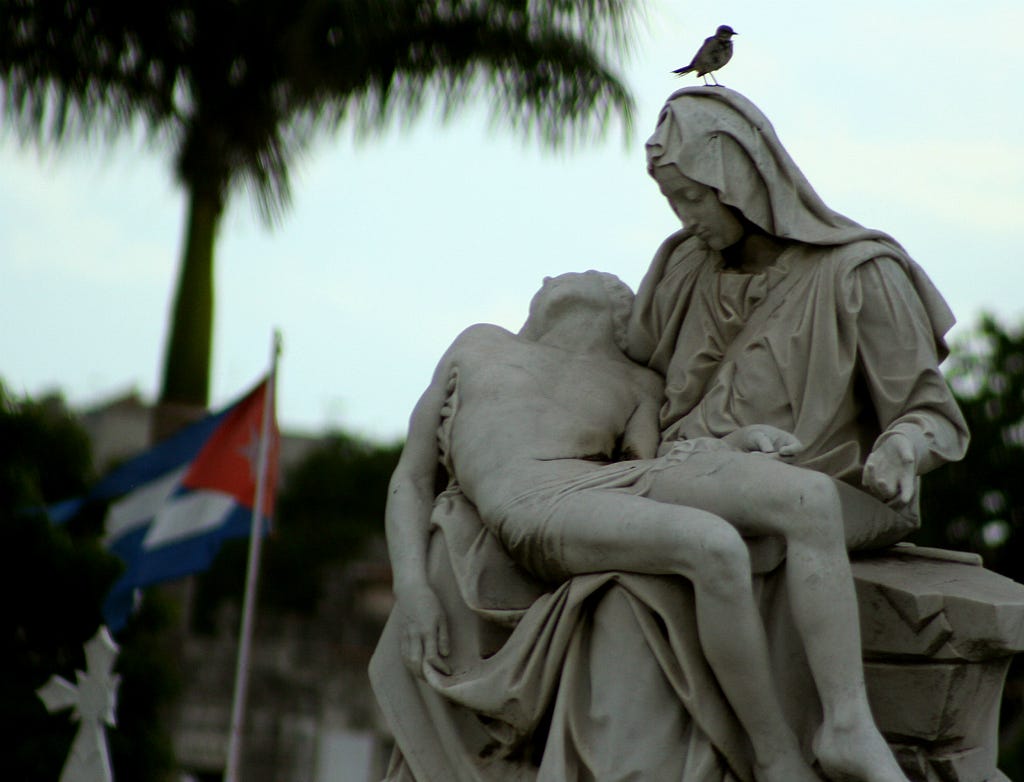
* * *
As I dial Artex’s number, I hope with all my strength that it concerns picking up and cashing a check. I barely have five convertible pesos and fifty Cuban pesos… and the best part is that I don’t know until when.
At least Dania, secretary of the Belarusian embassy in Havana, has a good salary, a sure income at the end of each month. Carpenters are expensive, and I haven’t been doing anything but writing for the past twenty years. Or, as my mother has said half-seriously and half-jokingly, I live off fictions. Literally and literarily.
Most Cuban writers have another stable job, as editors, popularizers, teachers of writing techniques, or something of the sort. And they do well, even if that job steals away their writing time; this is because a few hundred pesos each month, even if they are not much, do help out.
But my life as a total freelancer, although without schedules or bosses — that is, with lots and lots of writing — looks like the trailer for the upcoming Tarzan film. While the Lord of the Apes swings from one liana to the next on top of lions, leopards, and crocodiles that jump trying to bite him, always without success, I go from one royalty check to a payment for being part of a jury, and from a check for an article in a foreign magazine to a national or international award. However, oftentimes the fangs of the beast of poverty scratch my heels… and even higher upwards.
Of course, if one wants to get rich as an artist, becoming a writer is not the best option. I don’t know about other countries, but in Cuba it could mean becoming a reggaeton singer or a painter. Like Micha or Kcho. The only Cuban author who comes to mind who is truly well off and relieved thanks to what he writes and publishes is Leonardo Padura, who even bought a car with his awards and royalties. He is a model for everyone, the author from the Mantilla neighborhood and creator of Mario Conde, the sentimental cop with literary pretensions; recently he was awarded the Princess of Asturias Prize in Spain and a couple of years ago the National Literature Award… He is already a sacred cow, and he hasn’t even turned sixty, so the rest of us still have hope…
According to my friend Raúl Aguiar, born in ’62, he will not be a candidate until 2035, when he is seventy-three. And I not until 2038, at sixty-nine years. If we don’t die first, that is.
…from time to time I get some euros or dollars. Or rubles, or yen, or pounds, or Mexican pesos… We accept anything…
True, there is another tiny group of Cuban writers who more or less live off their pen, or their keyboard. Like Pedro Juan Gutiérrez, author of El rey de La Habana y Trilogía sucia de La Habana. And me too… without going that far, I’m not doing that bad lately. Besides a percentage of the new windows and shelves in Dania’s place, the flat-screen TV and the superb dresser I bought my mother a couple of years ago are proof that, even though there might be some months in between, from time to time I get some euros or dollars. Or rubles, or yen, or pounds, or Mexican pesos… We accept anything, because we cannot afford to pick and choose.
* * *
Ah, I was right; the thing from Ediciones Cubanas, the section in Artex dedicated to printing books by national authors in order to sell them in convertible pesos, concerns a check… for twenty-nine convertible pesos. And the irony is that I must go sign it today so that, some time later in the summer (surely not very soon), they call me to pick it up… in Miramar, that is, at the other end of the city.
Well, in Cuba half the writer’s job…consists of this running from place to place. Hell with everything, because today will a check-hunting day.
Well, in Cuba half the writer’s job, above all if one doesn’t have an agent (and few have one), consists of this running from place to place. Hell with everything, because today will a check-hunting day. I organize myself mentally, considering all the details, almost like the Allies for the famous D-Day in World War II. And this is because in Cuba, for those who do not have their own car… that is, most of the population, myself included (and thank God, because the fuel, the mechanics, and the repair parts cost more than whatever benefit a car could bring), going anywhere beyond the distance of a non-suicidal pedestrian — because only a kamikaze would walk more than two kilometers under the summer sun — can become a logistical operation as complicated as that Allied landing in Normandy on June 6, 1944.
Therefore, I decide that after leaving the gym I will pick up an almendrón — one of the old American cars that charge ten pesos for a flat rate — to Miramar. Sign there, pick up another almendrón to Gente Nueva, sign again, and from there to my mother’s house, running just in time to shower, have lunch, check my email, and leave — hopefully walking now! — for the Dulce María Loynaz Center for Literary Promotion, in Vedado, where a sort of collective birthday party is being held for all the authors born in the year’s first semester. Abstemious and a non-smoker, I’m forty-six and still have a child’s soul. I love cake and black refreshments! From the ceremony, run to UNEAC, the Writer’s Union, which is fortunately only three blocks away, and where at five is the Peña de la Mazorca, the session of the Ariete Group. Today the theme is erotic literature, and I have been invited to read… I even wrote a short story especially for the occasion, which is not even in the fantasy genre: “Ana That Cares For Me,” about a twenty-something with mental retardation and the sensual teenager who bangs him when her mother leaves for work…
Well, the schedule is cramped, but if I don’t fall dead along the way, I think I will be able to do all of it. Or at least almost all of it. Which in Cuba is already enough.
Now, let’s inform the troops: phone call to Dania, in the Belarusian embassy on Fifth Avenue and 70th (just in front of the Russian one… to keep an eye on each other, I guess), so that, besides saying good morning to my Fluffyone from Fluffyland, as I lovingly like to call her, I can update her on all my ambitious plans for the day and remind her to catch me at the Loynaz Center, if she wants cake, little treats… and beer, wine, or rum. Because every abstemious man needs a woman who drinks and represents him, and I, fortunate guy, have one that does so without getting drunk… most of the time.
No one in Cuba knows what he or she will end up working as. I am a biologist myself…
Running low on time — story of my life! — I walk up Jovellar Street at almost an Olympic pace up to the Hotel Colina, and then I walk rapidly down L, saying hi to my uncle Roberto, a PhD graduated from Rostock — now in the extinct East Germany — who now doesn’t make a living off his hard-earned degree in maritime transport, but as a teacher and translator of the splendid German he learned during his studies. No one in Cuba knows what he or she will end up working as. I am a biologist myself…
My uncle usually sits in the terrace of the Colina, to watch girls passing by, and in case a German-speaking foreigner shows up… Now he’s calling me, always somewhat mysterious, imperative and dramatic. I say hi to him; he wants to talk to me about how worried he is for his son, Rainer, recently a graduate in tourism, and his Swiss girlfriend and the apartment they want to buy… but I don’t have time.
Why does everyone think that if you are a writer and aren’t on a payroll or have to work for a boss then you can happily waste your hours each day? We writers write. Once in a while, at least.
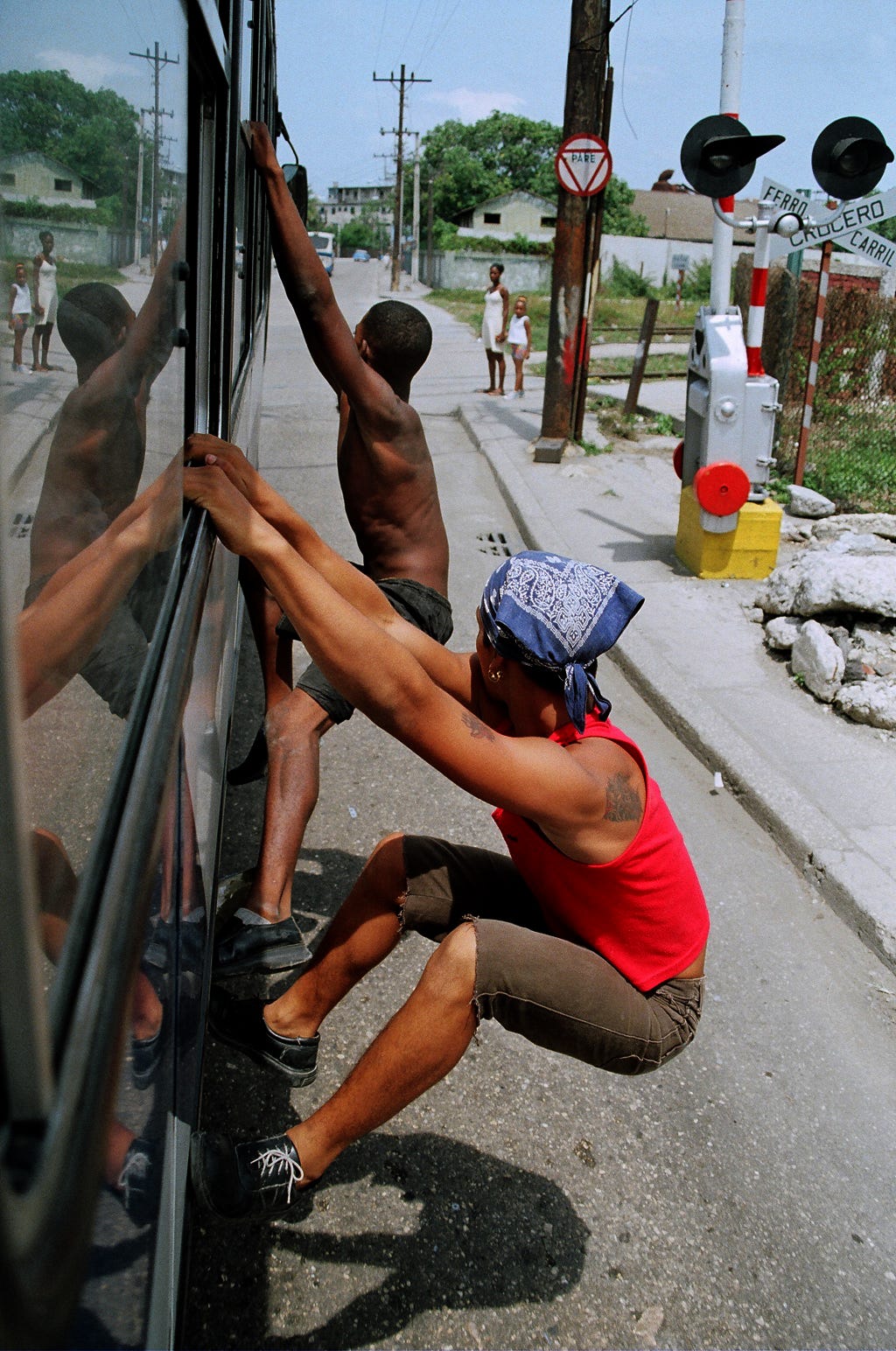
* * *
I have gone Monday through Friday to the Guille Gym since 2010, when they closed the much closer, more primitive, and cheaper one that belonged to my friend Irolán. It is on L between 17th and 19th, exactly seven blocks away from my house, but it’s far enough that I have to put on pants to go. You must pass in front of the hotel Habana Libre, the film theatre Yara, and the Coppelia Ice Cream, the heart of the Vedado and Havana.
The gym has equipment that is for the most part native — that is, made by hand by the owner. And it is a little expensive, for Cuban standards: normally, fifteen convertible pesos the first month, ten the next… and now they even want to raise it to fifteen. But there are a lot of machines, and Dania and I, both regulars, manage a significant discount if we make a single payment for the whole year — sixty convertible pesos for twelve months, when paying month by month it would be double. Will they now let us pay 90 convertible pesos, when the year is worth 180 instead of 120? Hopefully, because this place is not bad at all.
In fact, considering that the establishment, which is improvised in the basement garage of an apartment building, has mirrors in almost all the walls, air conditioning, and a TV on which they constantly run videos (which aren’t always reggaeton or salsa, a weird fact being that house music predominates, even though rock is almost totally absent), it is quite good. It even has treadmills, stationary bikes, and an elliptical trainer. The things missing are showers and a sauna… but that is for the hotels, which — logically! — cost thirty convertible pesos a month and upwards… when they have available rooms. Which never happens in the summer, of course.
Leaving aside the delicious mental rest of looking for a while at beautiful twenty-somethings with lots of makeup and keratin-straightened hair, their spandex clothes girding their youthful volumes sweating close to you, the truth is that I cannot conceive my daily routine without my session at the gym, regardless of how “un-intellectual” it may seem.
Eduardo Heras León…always says that a writer’s career is measured in hours per buttock. That is, the time one stays sitting in front of the keyboard…
I am an organized and methodical guy. Today is my legs day… and surrounding muscles. Eduardo Heras León — friend, mentor, creator of the Onelio Jorge Cardoso Center of Literary Formation, key in the literature of the past fifteen years, and, although very censored in the ’70s, an excellent storyteller himself, recently awarded the National Literature Prize, after years of being a candidate — always says that a writer’s career is measured in hours per buttock. That is, the time one stays sitting in front of the keyboard… so I, pretty lacking in buttocks, compensate my almost pathological deficiency in rear region fat by hardening it to the fullest with intensive squats and presses.
Squatting, abs-work, roller, sweat… time flies in the gym. Especially when I, between one set and the next, read a pair of pages on my Kindle, the best invention that has fallen into my hands in the past ten years. Now, whenever I travel to the provinces or another country, I don’t have to carry many heavy volumes in my backpack to avoid boredom on the bus or the plane, and I can read as fast as I want without the fear of running out of reading material… as long as the battery lasts, at least. This Paperwhite model, bought last year in the Barajas Airport in Madrid, is the fourth one I have. Yes, two have broken in the gym. The truth is that they are a little more delicate than paper books. But all the free literature — long live piracy! — that I can now have easy access to makes up for it; I can’t stand reading on the computer, not even on the laptop.
Between sets, a splendid idea for a story develops: a group of pawnshop owners and antiquarians get together periodically to tell each other anecdotes about their purchases and sales, and suddenly they all discover that they have bought a series of strange artifacts. Waste products from an alien exploration group? Remains of a team of time tourists? All speculations are fair game…
Make a mental note… Let’s see when can I write it. Nothing like exercising the body to stimulate the mind; some of my best stories have emerged between a chest press and a squat. Or in the afternoon while running on the boardwalk. Something that, by the way, I won’t be able to do today, with such a tight schedule.
Sweaty and feeling glorious, I weigh myself at the end: seventy-seven kilos, which is, subtracting the weight of clothes and shoes, seventy-six kilos… not bad for a forty-six-year-old Cuban intellectual with a height of 1.70 meters. I won’t be able to compete in UFC nor in Mr. Olympia, but at least I clash with the stereotype of the writer as tall and skinny or fat, little, and with glasses. Blessed be gas-permeable contact lenses, by the way. And that the farsightedness hasn’t hit me yet with all its strength.
* * *
I check my phone, because I can’t hear my cavalry bugle with the racket of the house music and the clanking of weights, which is the de facto soundtrack at Guille Gym. Two missed calls. One is from Aramis, the drummer and leader of Tenaz, the heavy metal band in which I’ve sung since 2007. Best not to call him; I guess it’s just to confirm that Sunday at noon we have a rehearsal in our locale in the Casa de Cultura de Centrohabana. And he does it reluctantly but also using the opportunity to complain for the eleventh time that the band is lifeless, threatening that if we don’t get serious he will dismantle it, because he, after all, is playing covers in El Submarino Amarillo with another band, Challenger.
By the way, they’re performing today and they don’t sound bad. If it weren’t a Tuesday and Dania did not have to work, it would be worthwhile to go, but with so much walking, surely after leaving the Peña de La Mazorca my Fluffyone will fall defeated when we get home, on the bed or on the sofa — she doesn’t care as long as I’m close.
The stage offers instant feedback, without having to wait for a publisher to get you out there. And it is addictive.
I have been a rocker by heart since I was eleven. And my looks and attire proclaim loud and clear my musical preferences. It would be a shame that Tenaz stopped existing, especially now that our first music video, for the song “El que a hierro mata,” has circulated a few times on national TV and is even on YouTube. Obviously, I’m not going to leave literature to dedicate myself exclusively to rock; I’m not that good. There was only one Freddy Mercury and he died already. But singing is something special. The stage offers instant feedback, without having to wait for a publisher to get you out there. And it is addictive.
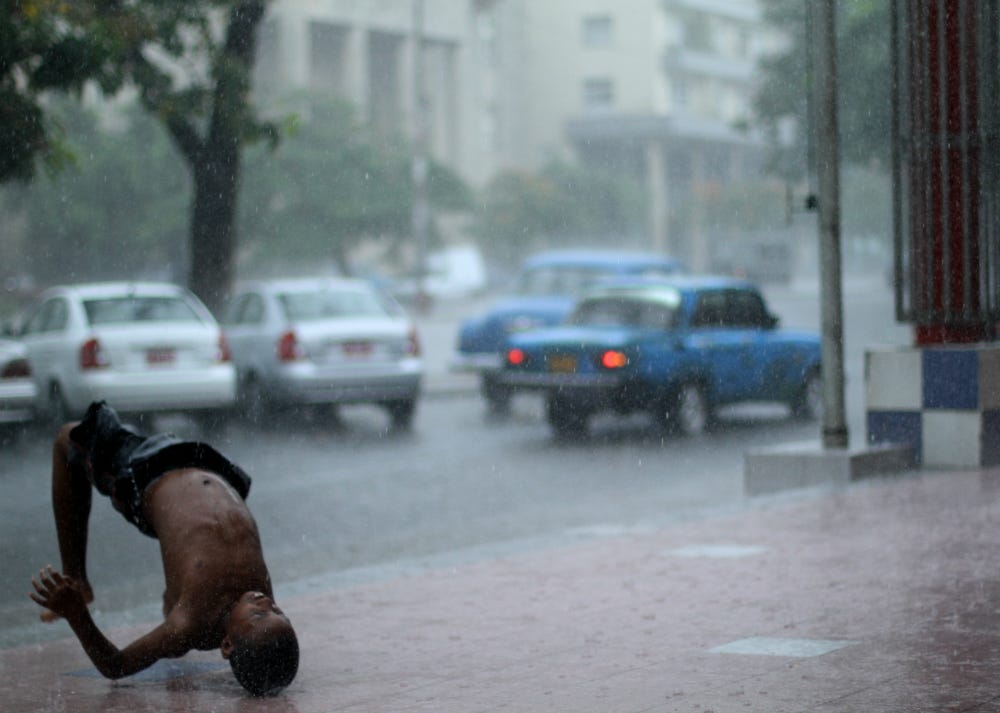
* * *
The other missed call is from my friend Aymara, who works in the Czech embassy. During the past year I have collaborated a lot with the Czechs’ intensive cultural program: conferences on the novelist Bohumil Hrabal, on Jaroslav Hásek and his great novel The Good Soldier Svejhk (or something like that… these Czech words with five consonants and a single vowel… or none at all), opening expositions and the like. Soon I will talk about the great plastic artist Mucha. Also, Jan, the young Czech cultural consultant, is a fan of short-range firearms, like me… with the advantage that he can own some, while I, with the strict Cuban regulations on gun possession, limit myself to dreaming of Berettas, Lugers, and Colts, and accumulate digital and print books on the subject. Nevertheless, we still affectionately call each other “gunpowder brothers.”
Hopefully it is something good. After sticking out my hand and climbing into an ancient ’49 Chevrolet heading to Miramar, I call Aymara. She — charmed that I liked the little chronicle she last posted on her blog, about the semi-abandoned but still beautiful Jardines de La Tropical — tells me very enthusiastically that if they give me the American visa this time, hopefully for five years instead of for another wretched six months… we could make an old project a reality: going to the annual LASA congress, which will be in New York in 2016.
Well, I pay for the call, but friends are friends. So that, resigned but smiling, while the old Chevy goes through the Línea Tunnel towards Miramar, I let her expand on the idea of forming a panel on syncretic religion in contemporary Cuban plastic arts and both of us going to the Big Apple next May… Yes, very well, the deadline is on September 8, so we must hurry, I say almost mechanically, and soon she congratulates me on the award.
Eh? Award? What award? Ah, but didn’t I know anything! Didn’t I submit to the Franz Kafka Novel competition? Yes… and they haven’t told me yet? Niet, tovarich. Well, how nice to tell you the news! Mr. Jan told her that I had won the prize.
Coooooño! I scream and stick my hand out of the almendrón, despite the other passengers thinking I’m mad… Well, with my attire, I am something unusual already. Not only does the competition pay well (like five hundred convertible pesos, I think), but the Prague publisher Fra also publishes the winning novel in Czech and Spanish!
Additionally, the prize has a certain prestige already, and not only for its dissidence. Last year my friend Angel Santiesteban won it, a great storyteller now doing five years in prison, supposedly for a common felony — hitting his ex-wife! — even though the whole world knows that it is really for screwing the government too much with his blog “Los hijos que nadie quiso.” His award winning book, El verano en que Dios dormía, is an amazing novel about rafters. I was at his presentation in the Readers Club, right in the Czech embassy, a few months ago. So they will also invite me there when my book comes out! With the difference that I’m free (for the moment, at least) and the recalcitrant Santiesteban was not even let out of jail for his own book launch…
Well, very good: since that very far off Pinos Nuevos Prize in 1995, I hadn’t won another national award that wasn’t in science fiction, popular science, or fantasy. And in realism I have only published the short story collection W and one or two stories in magazines. Surely many had already forgotten that Yoss doesn’t only write fantasy…
I wrote the text and sent it to the competition, Puntos del no retorno, ten years ago already, in 2005. A more unpublished novel is hard to find.
Babbling, and with my heart ringing with joy, I hang up on Aymara to better revel in the amazing news. How ironic: I wrote the text and sent it to the competition, Puntos del no retorno, ten years ago already, in 2005. A more unpublished novel is hard to find. Although in my case, the fact that it remained unpublished up to now is not because it was a bit uncomfortable to the Cuban cultural authorities (all realist fiction these days ends up being so, more or less), but because it is one-hundred-percent autobiographical. I wrote and finished it a few weeks after ending a marvelous and tormented relationship with a gorgeous trigueña who, when she read it — because I sent it to her by email, of course — asked me not to publish it for at least another ten years, so that I didn’t “damage her and her girls’ personal reputations”; she worked and still works in a serious international body, and her daughters were fourteen- and sixteen-years-old at the time.
Well, a lot of water and things-that-are-not-water have run under the bridge of the Almendares River since that day… The girls are not so young anymore; one of them even became a mother a year ago. And my beautiful ex, so worried then for what others would say, later dated half of Havana, above all singers and guitarists in the closed world of rock cover bands, so I imagine that she won’t get too angry if I vent some of her past whims. And I won’t have a problem in sending her the book when I have it on my hands.
I think I learned the lesson of that scuffle with my non-fiction piece Aporías de Ayalí; when it was published in 2000, the text — that had nothing fictional to it, and did reveal some things about the protagonist that she evidently wanted to forget — made the girl’s grandfather, a retired colonel, accuse me of libel. And even though in Cuba, in practice, that juridical-criminal figure doesn’t exist, the former serviceman influenced his connections so that the UNEAC put me through an ethical commission and suspended me for two years. Yes, the little joke cost me dearly.
It’s a literature thing. Or a gossip thing, which sometimes, as in this case, is almost the same thing.
But the only animal that trips over the same rock twice is… Julio Iglesias. While I mentioned Ayalí and her boyfriends with names and last names in that story, the Chaconauta in Puntos del no retorno, and her daughters, and my other relationships and figures… no way. Not even one name. Although I don’t think that anyone who knows them will have the least trouble in identifying them… It’s a literature thing. Or a gossip thing, which sometimes, as in this case, is almost the same thing.
We are already at 3rd and 96th, a block away from the location of Artex, so I pay the ten pesos and step out of the car, stinking of gas like a worker at a drilling station, but jumping with happiness.
An award overseas, checks in sight, a collective birthday and a reading of erotic stories in public…
What more can a Cuban writer ask for?
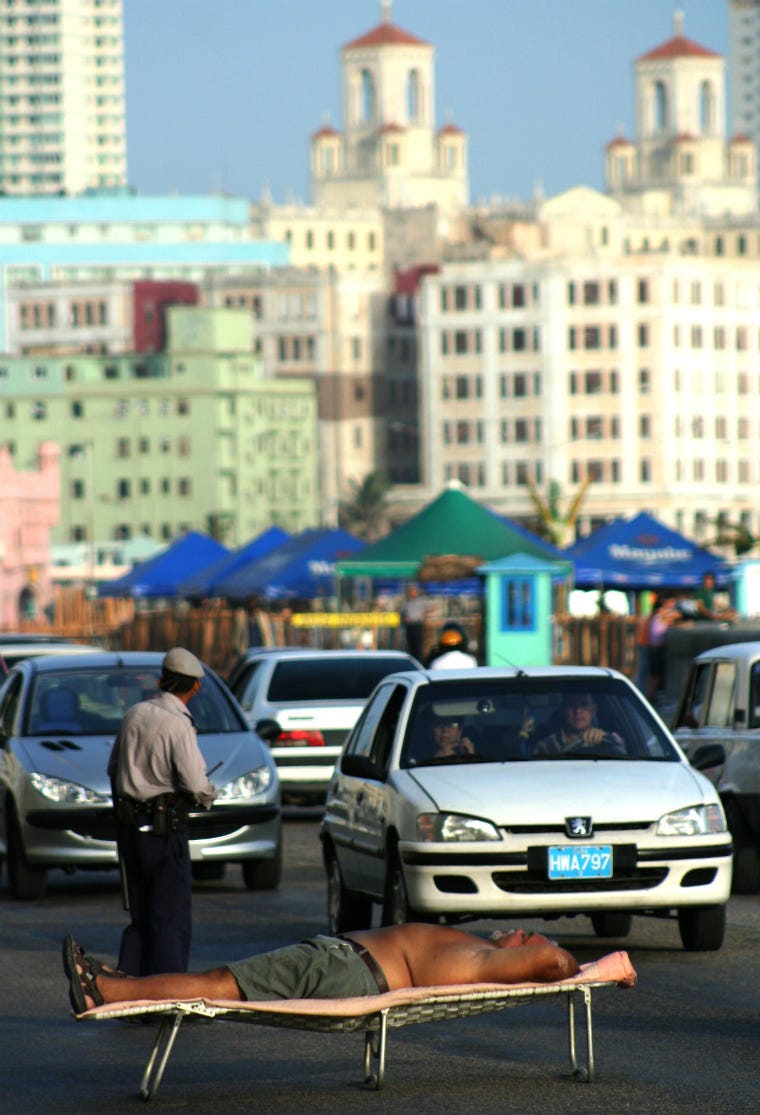
* * *
In practice, following the rules of realism, now I should narrate the rest of my day right with the same amount of detail. If I managed to sign both checks, if the power came back to my mother’s house in time for me to go over my extremely slow emails at cubarte.cult.cu, if I arrived in time at the Loynaz Center, which has a buffet menu, if Dania left the embassy in time and caught up with me to eat and drink something, if the public applauded a lot or little for my story “Ana Who Takes Care of Me” in the Peña de La Mazorca with Ariete’s boys, if later I left with everyone to celebrate the peña and my award with a drinking spree (I, for my part, drinking Tukola) in the fountain on the park by H and 21st… in short, another ten more pages.
…I prefer to leave you supposing that, for once, the plans of a Cuban writer were carried through… more or less.
But this is already too long, so I prefer to leave you supposing that, for once, the plans of a Cuban writer were carried through… more or less. Finishing this chronicle tonight, sitting in front of the superb black keyboard that Dania bought herself last Sunday to match the rest of her computer. And describing myself, while she sleeps cuddled on the sofa, tired of the day’s hustle, but satisfied to be close to me, and I writing, quite inspired, the beginning of the story about the antiquarians, that for the moment is called “Circumstantial Evidence”…
Because walking around Havana to sign checks that God-knows-when you will be able to cash in, going to the gym, changing windows, and all the rest of daily preoccupations of the modern Cuban Tarzan are all very entertaining, varied, and picturesque… but, here as in Hong Kong, now and in a hundred years, the most important thing, what really makes a writer, is one thing only: writing.
Writing, writing always, all you can. Writing even though you do not know if you will be able to publish it, and less when it will be published, nor if you will be paid for it. Writing, from your sense of humor, from the gut, from what you live and what you dream, because if you do not write you can always reinvent. And because that is, after all, what we writers do.
And the rest — whether it turns out glamorous or cumbersome, or both — is nothing but mere collateral.
About the Author
Born José Miguel Sánchez Gómez, Yoss assumed his pen name in 1988, when he won the Premio David in the science fiction category for his novel Timshel. Together with his peculiar pseudonym, the author’s aesthetic of an impentinent rocker has allowed him to stand out amongst his fellow Cuban writers. Earning a degree in Biology in 1991, he went on to graduate from the first ever course on Narrative Techniques at the Onelio Jorge Cardoso Center of Literary Training in 1999. Today, Yoss writes both realistic and science fiction works. Alongside these novels, the author produces essays, reviews, and compilations, and actively promotes the Cuban science fiction literary workshops, Espiral and Espacio Abierto.
Photographs from Orlando Luis Pardo Lazo’s Abandoned Havana
You can find all the essays from The Writing Life Around the World at Electric Literature.
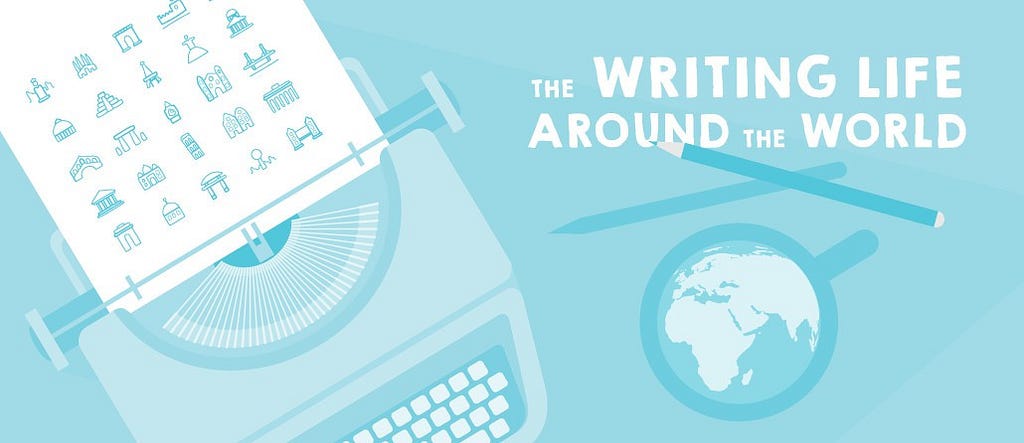
A special thanks to the team at Restless Books for their help in producing this essay. Yoss’ novel, A Planet for Rent, is out from Restless Books now. Yoss will be touring the US this fall. For more information, check in with Restless Books. You can also read Electric Literature’s conversation with Yoss here.
This series is supported by a grant from the Council of Literary Magazines and Presses and the New York State Council on the Arts.
